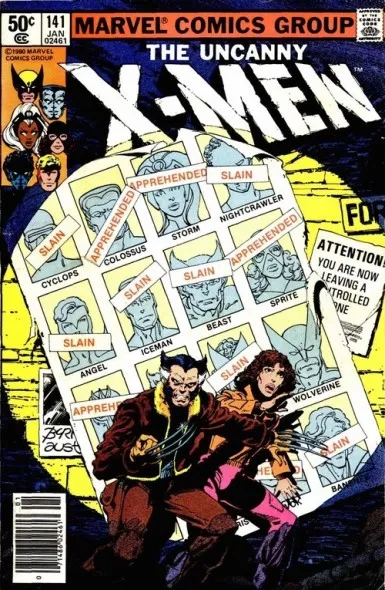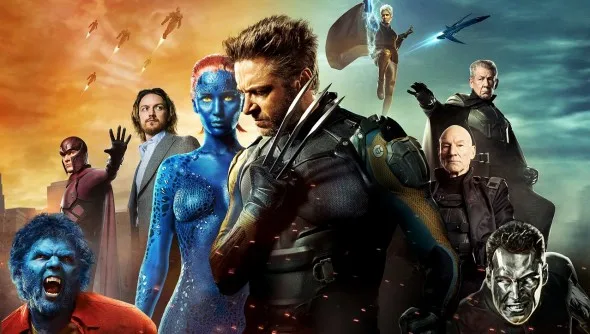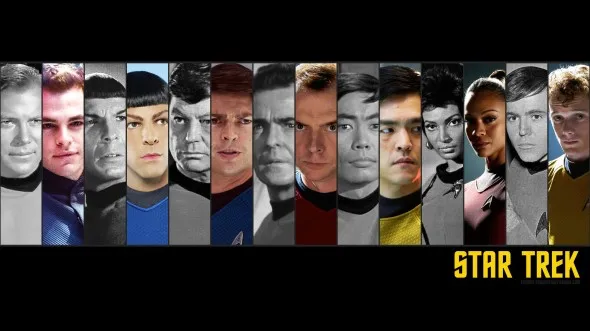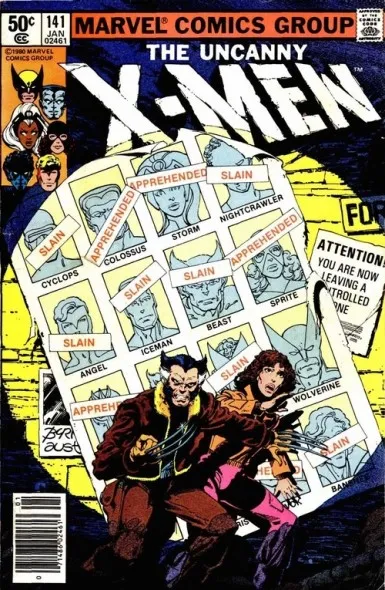The problem with the past, writes Friedrich Nietzsche, is that we can’t change it. Human will, which in Nietzsche’s philosophy is our most primordial and impellent force, has a naturally violent and disagreeable reaction to the whole concept of the past because it (the will) only works in one direction: forward. The past is beyond the will’s scope of influence – and the will hates that. It can’t abide being out of control, and the fact that there is this huge and utterly immutable chunk of the universe that affects us profoundly but is utterly immune to our attempts to influence it in return, drives the will nuts. Our mistakes are forever. Worse, everyone else’s mistakes are forever. History, Nietzsche tells us, is not and can never be a science precisely because it is inherently subjective and unknowable, but at least part of that subjectivity is down to the fact that we don’t want to accept what has happened; the urge for revenge comes out of this rejection of the past – as if by exacting punishment against someone for some crime they committed, the crime itself can be erased from history. If only if were that simple.
Bạn đang đọc: Rewriting the Future: Retroactive Continuity as Marketing – Overthinking It
But in art, fortunately, in yet another example of how it is better than life, it is that simple! The phenomenon of retroactive continuity (or retcon) is a well-established method that creators have for fixing up problems that occurred in the past within the artwork. The retcon is probably most closely identified with the medium of comic books, and most particularly with the superhero genre – although it was notably used by none other than Arthur Conan Doyle when he had Sherlock Holmes die by falling off a waterfall in a struggle with archnemesis Moriarty, only to return years later, alive and well, because fans demanded it. In comics, the retcon is sometimes used as a way of inserting details into a story that reconciles some apparently contradictory facts to eliminate discontinuities (such as in Untold Tales of Spider-Man and X-Men Classic). Sometimes events or facts from previous stories are ignored or treated as if they never happened in order to create new possibilities for storytelling or when some particularly egregious or out-of-character stuff happens that would be better off forgotten.
But sometimes, a retcon can be a plot point – something happens inside the storyworld that not only recontextualizes past events, but explicitly rewrites them. DC Comics has done to its entire universe five times in the last thirty years, regularly erasing large swaths of their continuity when it becomes inconvenient or oppressive – most recently in 2011 with the launch of “The New 52.” Marvel Comics has never committed this kind of sweeping Cosmic Retcon (at least not yet, but there are rumours of an impending continuity reboot), although they have reset large swaths of their history before – most notably the really gross “One More Day” storyline in Spider-Man, where Peter Parker sells his marriage to the devil in exchange for the life of Aunt May, so the past twenty years of wedded bliss with Mary Jane Watson never happened.
The latest (and, according to Rotten Tomatoes, greatest) of the X-Men films, “Days of Future Past” (based on the 1980 X-Men story by Chris Claremont of the same name) uses the time travel conceit that, in its source material, was just a cool science fiction storytelling trope, and uses it not just to tell a good story but also to fix up bad storytelling decisions in previous installments of the series without just pretending they never happened. It narrativizes what was basically a marketing decision and, interestingly, it mostly succeeds.
In the original comic, which was published and set in 1980, Kitty Pryde travels back in time from the future (2013) to the present (1980) in order to prevent an assassination that would lead to the imminent extinction of the mutant race. In the movie, released in 2014, Wolverine travels from the present (2013) into the past (1973) in order to prevent the assassination.
The comic did not retcon anything – it was a straight time-travel story of a hero from the future trying to change the past after all other options have been tried and have failed. It’s a familiar science fiction trope, perhaps most famously occurring in the Terminator series. These stories typically take place primarily in what, from the audience’s perspective, is the present, the idea being that this horrible dystopia is what awaits us in the future if we don’t change our ways.

The meat of the X-Men film, though, takes place forty years in the past from the perspective of the audience, and the hellish dystopia is now. Days of Future Past is a direct sequel both to The Wolverine (the chronologically latest entry in the X-Men film series) and to X-Men: First Class, the prequel film telling of the original formation and earliest days of the X-Men (released in 2011 but set in 1962).
The pretty-good First Class was, at the time, seen partly as a way of rebooting the aging and ailing X-Men franchise without actually rebooting it. The third X-Men film (subtitled The Last Stand) was generally considered to be garbage and ended with the deaths of some major characters; similarly, the two solo Wolverine films were pretty bad and polluted the X-Men film universe with plots events that the audience and creators probably wished had never happened.
In superhero movies of the past, you might just take a break and then reboot the series entirely. That’s what happened with Batman after director Joel Schumacher ruined it with his execrable two films in that series – eight years later, Christopher Nolan directed the reboot Batman Begins and later its sequels The Dark Knight and The Dark Knight Rises, erasing the ignominy of Schumacher’s nipple-encrusted nonsense. Spider-Man did the same thing on an ever shorter timescale: after two excellent movies and one dreadful one directed by Sam Raimi, the series was rebooted entirely only five years later. . The wisdom of that decision has been debated, but obviously the studio felt that there was too much baggage associated with the original films and wanted a fresh start. Marvel did something similar after only a single Hulk movie – when the 2003 Ang Lee-directed Hulk failed artistically, commercially, and critically, they produced a semi-successful, semi-sequel, semi-reboot with 2008’s The Incredible Hulk that led directly into 2012’s The Avengers.
Teenage Mutant Ninja Turtles, I must mentioned, has done this too – after the first, excellent film in 1990, and two sequels of declining quality, then a semi-sequel semi-reboot in 2007’s really good but underperforming TMNT, we’re about to see another reboot of the series which, let’s face it, looks like it must be trying to be bad. Okay, I haven’t seen it yet. I hope I’m wrong.
But so anyway, X-Men didn’t do that. Rather than rebooting the series entirely, they adapted what is arguably the most popular and iconic X-Men story and used it to fix the problems that had accumulated throughout the film series’ fourteen year history. The reasons that they did this were very likely marketing-related more than anything else – you’ve got to have a very good reason to start over from scratch when you’ve already got perfectly- cast box-office draws Patrick Stewart as Professor Xavier, Ian McKellen as Magneto, and Hugh Jackman as Wolverine. There was always the option of simply going on pretending that X-Men 3 and Wolverine had never happened (to a lesser extent this is apparently what Ghost Rider: Spirit of Vengeance seems to have done, as in that purported-sequel to Ghost Rider we see a flashback to Ghost Rider’s origin that blatantly contradicts what happened in the previous film), but Days of Future Past chose to transform marketing into story – a risky proposition designed to draw disillusioned fans back to the series without excessively undermining the built-up continuity of almost one-and-a-half decades’ worth of movies.
Tìm hiểu thêm: CS:GO: Tất tần tật về Skin vũ khí trong CS:GO mà bạn cần biết

This is sometimes known as an Author’s Saving Throw, and in the wrong hands it can backfire spectacularly. With Days of Future Past, though, it looks like it won on every count: it was an artistic, commercial, and critical success – all in all, a marketing slam-dunk.
To see why, we can compare and contrast with the other notable recent film series retcon, J.J. Abrams’s Star Trek. Since the official end of the original Star Trek cast’s story in Star Trek VI: The Undiscovered Country (1991) and the passing of the big-screen torch to The Next Generation in Star Trek: Generations (1994), there had only been one Star Trek movie considered a success in any terms – that would be 1996’s Star Trek: First Contact (also a time-travel story, interestingly enough). Going again by Rotten Tomatoes scores, Generations was rated 48% fresh, Insurrection (1998) was rated 55% fresh, and Nemesis (2002) was rated 37% fresh. First Contact was rated a comparatively astonishing 92% fresh. Meaning that the Next Generation films were batting a pretty awful one-for-four over eight years, and on the average were getting worse and worse. Nobody was happy with this – not the fans, and certainly not the owners of the Star Trek franchise’s intellectual property.
A reboot was in order. But the studios recognized that it was a very precarious proposition. None of the subsequent Star Trek television series had the cultural cachet to helm a feature film that was intended for a mass audience, and going with all-new characters risked alienating (sorry, pun) Trek fans and failing to hit with non-Trek fans. At the same time, starting from scratch wasn’t a very attractive option either. There was almost fifty years of continuity that the studio was reluctant either to discard or erase.
Like X-Men did with First Class, Star Trek chose to go back to the beginning, telling the earliest stories of the most well-known Star Trek characters (the crew of the original U.S.S. Enterprise: Kirk, Spock, Scotty, etc.). This allowed them to cast fresh, young actors and still maintain the brand-recognition that these iconic characters have developed over the past half-century. The problem, though, was stakes. We already know what happens to all these characters and the galaxy they inhabit. We know that Kirk will be fine until he gets sucked into the Nexus thirty-five years later. We know that Spock will die twenty-seven years later, but will get better soon. We know the original Enterprise will be destroyed shortly thereafter, and later rebuilt. We know that the Klingons won’t take over the Federation. So where’s the risk? Where’s the tension?
The solution to this problem, as it so often is, was time travel.
2009’s Star Trek sought to have its cake and eat it too by rupturing the timeline at James Kirk’s birth. Later, when Kirk and the hastily-assembled new crew of the new Enterprise realize that a bereaved Romulan has travelled back from the future to destroy them, they have an eye-rollingly expositional conversation:
Spock: Nero’s very presence has altered the flow of history, beginning with the attack on the U.S.S. Kelvin, culminating in the events of today, thereby creating an entire new chain of incidents that cannot be anticipated by either party.
Uhura: An alternate reality.
Spock: Precisely.

>>>>>Xem thêm: Andehit Là Gì ? Tính Chất Hóa Học Của Andehit
Translation: Don’t worry, Trekkies/Trekkers! Your precious original timeline is still out there somewhere. And indeed, the licensed Star Trek comics and the Star Trek MMO follow the original timeline as it would have continued on into the future, while the film series follows the more mass-marketable alternate reality.
Days of Future Past didn’t do that. The whole point of that movie’s plot is to rewrite the timeline to make it better for the good guys, whereas in Star Trek, rewriting the timeline is what the bad guy wanted to do, although luckily for us he only managed to create a new universe and not destroy the old one. The difference in these two plots as marketing decisions hinges on the fact that Star Trek’s “original” timeline is the canon of the television series and movies. Messing with that is going to bring down the wrath of the fans, so it’s super important to make it clear that the original universe still exists. X-Men, though, has its original canon in the comics. The film series is already an alternate universe. Particularly because this is an adaptation of a well-known storyline from the comics, it’s not just safe but smart to erase the film universe’s canon – it has the same effect as changing the past in Star Trek (opening up new story possibilities by wiping out bad storytelling decisions from previous movies) because everyone who was invested in the X-Men films already hated these failed plot points anyway. Nothing would be served by positing an alternate reality where the original dumb stuff still existed.
An interesting side-note to this is the furor erupting over the announcement that the upcoming Star Wars episodes won’t be beholden to the exhaustive “Expanded Universe” of the novels, comics, videogames, etc., but will take as canon only the six films and the Clone Wars television series. Unlike Star Trek, where only the television series and films have ever been considered canon and all the novels, comics, and so on have not, the Star Wars Expanded Universe was considered to be official. People were (and are) invested in it. Now, fully half of Star Wars canon is the prequel trilogy, which nobody really likes very much at all, whereas awesome stuff like the videogame Star Wars: Knights of the Old Republic are relegated to secondary status at best. That’s exactly what Star Trek wanted to avoid, and what Days of Future Past didn’t need to worry about it at all. These were marketing decisions rather than storytelling decisions on every side: all except the most hardcore Star Wars fans don’t know anything but the movies anyway, so in order to give themselves narrative space to work in, they had to erase everything that they reasonably could. The backlash in terms of how much wiping out that history would harm the series’ bottom line was calculated to be negligible because readers of the books represented such a relatively minor piece of Star Wars fandom relative to the proportion of casual Star Trek fans who would be pissed off by completely destroying the mainstream universe of that property.
Days of Future Past and Star Trek both clearly succeeded commercially and critically. But in my opinion, only Days of Future Past was an artistic success, which Star Trek was not. The reason is this: as a long-time fan of both of these properties, I thought that Days of Future Past was a philosophically faithful adaptation of a beloved storyline from the X-Men canon. It certainly had its flaws and weaknesses (why can Kitty Pryde do time travel all of a sudden? Are we really supposed to buy that power-cancelling mobility-restoring injection that Beast gives Xavier? Come on), but there was a strict fidelity to the message of X-Men: when it comes to stamping out prejudice and fighting for equality, to what degree can the ends justify the means? Days of Future Past held fast to this theme, and so its minor failures were forgivable.
Star Trek had a lot going for it. It was exquisitely well-cast. Its acting and characterization were spot-on. Special effects were high-quality and action sequences were expertly choreographed. It was a fun and enjoyable science fiction action movie. But it was dumb. It had plot holes the size of a supernova and the science was ridiculously implausible even by Star Trek standards. Star Trek at its best has always been primarily thoughtful and intelligent. The message of Star Trek has always been: human beings are basically good, and if we work together to oppose the violent and selfish we can create a better world for everyone. The message of J.J. Abrams’s Star Trek was: explosions are cool and make money. A rad ATV chase couldn’t save the Star Trek: Nemesis and bungee-jumping from a space ship didn’t save Star Trek’s egregious retcons that betrayed the ideals that made it popular and relevant in the first place.
Days of Future Past’s retcons, quite on the other hand, may have saved the X-Men film franchise not only commercially but artistically. From this we should learn that you can change the past, and it can make things better. And that marketing decisions don’t need to be cynical – they can be a factor in crafting good and meaningful stories. If that’s something you decide that you care about.
Are you listening, Hollywood? I am using my will! Nietzsche commands you! Listen…listen to me. P-please?

